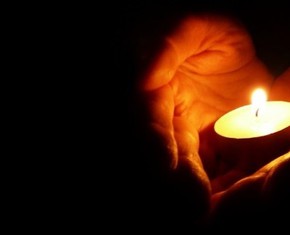The views expressed in our content reflect individual perspectives and do not represent the authoritative views of the Baha'i Faith.
Sometimes we make mistakes; occasionally we make very serious mistakes. We get angry at ourselves. We kick ourselves for being “so stupid.” We wish we could undo what we’ve done.
After we realize our mistakes we cry. We shout at ourselves. We beg God to forgive us. We beg the ones we have wronged to forgive us. We feel depressed, sad, frightened, regretful.
These negative feelings can continue for a short time or a lifetime, depending on how well we can forgive ourselves.
A counselor once told me about “structured wallowing.” Set a time limit for feeling P.L.O.M.—”poor little ol’ me.” The time limit can be an hour, a day, but not more than a week. The key word here is “limit.” By definition, this means not the rest of our lives, not a year or even a month.
During that time, you have permission to feel the very worst—very depressed and very sad. Grieve and cry to your heart’s content. Talk with friends and loved ones. Write in a journal. Write a letter or an e-mail, but don’t send it. Do whatever you need to do to overcome your upset, as long as it’s healthy and constructive.
Above all, we must focus intensely on our love for God, and detach ourselves from everything else. In the words of Baha’u’llah:
The essence of love is for man to turn his heart to the Beloved One, and sever himself from all else but Him, and desire naught save that which is the desire of his Lord. – Tablets of Baha’u’llah, p. 155.
The more we focus on our love for God, the more we go forward and grow, making it easier to forgive ourselves.
With that in mind, and once the time limit of your “structured wallowing” has passed, get off it and move on. Live with it. Go forward. Pick yourself up off the floor and get on with your life. Cheer up. Treat yourself. Smile. Laugh. Read a funny book. See a funny movie. Enjoy your life. Feel great about who you are as a human being, in spite of your mistakes.
Events happen, but life goes on. We must go with the flow. We must totally accept our mistakes: they are water under the bridge and cannot be brought back—that water is gone forever.
We must have faith that in spite of the decisions that led to our mistakes, we will continue growing, things will somehow work out with God’s help, everything will turn out okay. In the big scheme of things, most of what we did won’t make much difference a year from now, or even a month from now.
We must learn from our mistakes. This is not always easy. Sometimes we make the same mistakes again. Darn! Why did I do that? I know better!
When we repeat the same mistakes, we must keep trying to learn from them. We cannot give up on life. We have to just keep trying: two steps forward, one step back. As long as we are progressing, growing, becoming better human beings, this is what matters.
We must accept the fact that we are human and we make mistakes. We must accept what is, rather than what we think should be. We can recite the Serenity Prayer by Reinhold Niebuhr: “God grant me the serenity to accept the things I cannot change; courage to change the things I can; and wisdom to know the difference.”
Yes, we blew it. But everyone does, sooner or later. We are still the beautiful human beings that we are. A wrong choice or a bad decision does not make me a bad person. We are not evil beings. Sometimes we just screw up and even screw up royally.
We must give ourselves love, gentleness, kindness, like we would give our family or our best friends.
The Baha’i teachings say:
There are imperfections in every human being, and you will always become unhappy if you look toward the people themselves. But if you look toward God, you will love them and be kind to them, for the world of God is the world of perfection and complete mercy. Therefore, do not look at the shortcomings of anybody; see with the sight of forgiveness. The imperfect eye beholds imperfections. The eye that covers faults looks toward the Creator of souls. – Abdu’l-Baha, The Promulgation of Universal Peace, p. 93.
God is happier with us than we are with ourselves. God knows our hearts. He is All-Loving. He loves us more than we can imagine.
Since the All-Loving Creator loves us more than we can comprehend and His grace is infinite, we need to learn to love and appreciate ourselves. This is not easy because we can be very hard on ourselves, especially if we are perfectionists.
When the Bab (the Forerunner of Baha’u’llah) declared his mission to Mulla Husayn, the latter didn’t accept the claim of the Bab right away. Instead, he asked the Bab questions. Mulla Husayn’s plan was to accept the Bab if the questions were answered to his satisfaction.
When Mulla Husayn finally accepted the Bab, the Bab replied:
“’Had you not been My guest,” He afterwards observed, “your position would indeed have been a grievous one. The all-encompassing grace of God has saved you. It is for God to test His servants, and not for His servants to judge Him in accordance with their deficient standards ….”’- Dawnbreakers by Nabil, p. 61.
Surely we all can be assured that God will forgive us, if we sincerely ask for forgiveness. If God can forgive us, than we should certainly be able to forgive ourselves.
















Comments
Sign in or create an account
Continue with Googleor